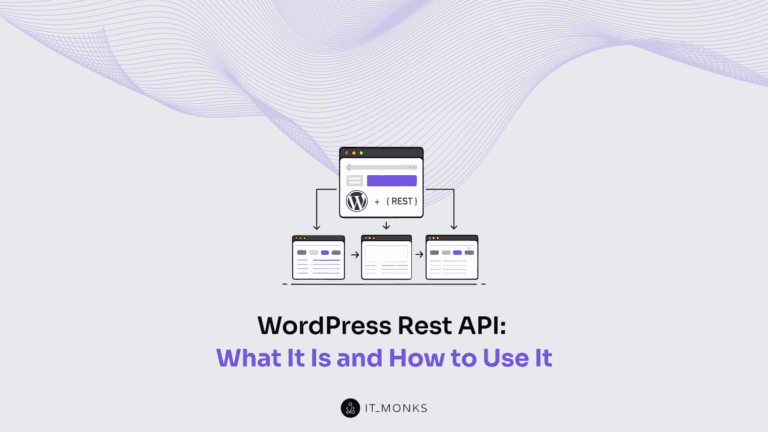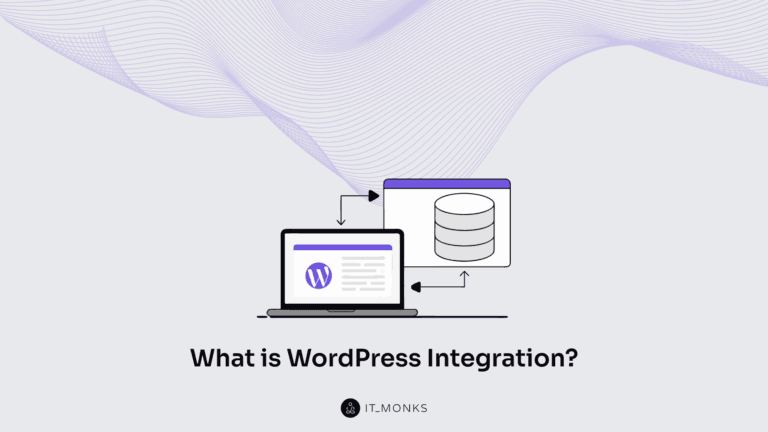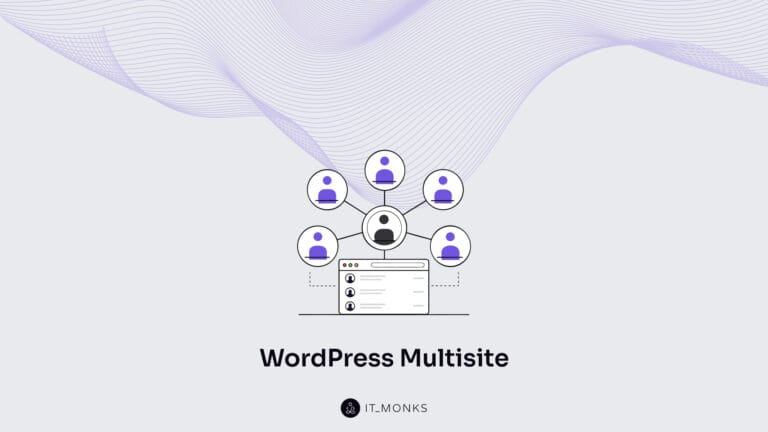Best Ecommerce CMS
Table of Contents

As the digital marketplace continues to flourish, businesses worldwide are venturing into Ecommerce, realizing its unparalleled potential for growth and expansion. However, at the heart of every successful online venture lies a pivotal element – the Content Management System (CMS). The role of an Ecommerce CMS extends far beyond the conventional boundaries of content organization and presentation. It serves as the backbone of an online store, orchestrating a seamless symphony of product displays, transactions, and customer interactions. A reliable Ecommerce CMS is not merely a technological tool but the catalyst that transforms a static website into a dynamic, customer-centric marketplace.
In essence, the right Ecommerce CMS empowers businesses to:
- Showcase products with unparalleled visual appeal.
- Simplify the complexities of inventory management and order processing.
- Enhance the overall user experience, fostering customer engagement and loyalty.
- Adapt swiftly to the evolving demands of the digital landscape.
- Setting the Stage for Your Journey:
Selecting the most suitable Ecommerce CMS can be both exciting and daunting. The myriad of choices, each promising unique advantages, underscores the need for a well-informed decision. In this comprehensive guide, we navigate the intricate terrain of Ecommerce CMS platforms, illuminating the path for individuals and businesses seeking the perfect fit.
Whether you’re a seasoned Ecommerce entrepreneur or venturing into online sales for the first time, this guide is designed to be your compass. We’ll unravel the intricacies of the top Ecommerce CMS platforms, providing insights into their features, pricing, and user experiences. By the end of this journey, you’ll be equipped with knowledge and the confidence to make a decision that aligns with your unique business goals.
Understanding the Role of Ecommerce CMS: Navigating the Digital Marketplace
In the dynamic landscape of Ecommerce, where the virtual storefront is as crucial as its brick-and-mortar counterpart, the role of a Content Management System (CMS) takes center stage. Let’s unravel the significance of an Ecommerce CMS and how it transforms how online businesses operate. At its core, an Ecommerce CMS serves as the digital nerve center, seamlessly integrating various elements to create a cohesive and engaging online shopping experience. Unlike traditional websites, Ecommerce platforms demand dynamic content management that goes beyond the static display of information. A robust CMS empowers online store owners to effortlessly update product catalogs, manage inventory, and adapt to emerging market trends.
One of the paramount advantages of employing an Ecommerce CMS lies in its ability to simplify website management for online store owners. Traditionally intricate tasks, such as product updates, pricing modifications, and inventory tracking, are streamlined into intuitive, user-friendly interfaces. This reduces the learning curve for store administrators and facilitates quicker response times to market dynamics.
Benefits of Ecommerce CMS
- Effortless Content Updates: With an Ecommerce CMS, updating product information, adding new offerings, or modifying existing content becomes a hassle-free task, eliminating the need for extensive coding knowledge.
- Dynamic Visual Presentation: The CMS allows for dynamic and visually appealing product displays, enhancing the overall aesthetic appeal of the online store and attracting potential customers.
- User-Friendly Interface: Online store owners can manage their websites efficiently through a user-friendly interface, empowering them to focus on strategic aspects of their business rather than grappling with technical intricacies.
Drawbacks of Ecommerce CMS:
- Customization Limitations: Some Ecommerce CMS platforms may have limitations when it comes to customization, restricting businesses with specific design or functionality requirements.
- Dependency on Third-Party Extensions: While many CMS platforms offer a range of features, certain functionalities may require third-party extensions, leading to additional costs and dependencies.
- Learning Curve for Advanced Features: Harnessing the full potential of an Ecommerce CMS may require a learning curve for advanced features, potentially demanding time and resources.
As we navigate the landscape of Ecommerce CMS, we must weigh these benefits and drawbacks against the unique needs of your online business. A judicious choice will enhance your operations’ efficiency and set the stage for a thriving digital enterprise.
3 Best Ecommerce CMS Platforms Overview
In the realm of Ecommerce, the choice of a Content Management System (CMS) can make or break the online shopping experience. Let’s embark on an in-depth exploration of three leading platforms—WordPress, Shopify, and BigCommerce—unveiling their distinctive features, advantages, and potential drawbacks.
1. WordPress

WordPress, the venerable titan of content management, seamlessly converges with Ecommerce prowess through the WooCommerce plugin. This dynamic partnership empowers users to not only create immersive and versatile online stores but also harnesses the renowned user-friendliness that defines WordPress. The amalgamation of a vast library of themes and plugins positions WordPress with WooCommerce as an unparalleled choice, catering to businesses of all scales and niches.
Notable Features
- Extensive Customization Palette: WordPress offers an expansive selection of themes and plugins, facilitating users in crafting tailored online stores that align precisely with their vision and functional requirements.
- Content Versatility: Beyond its Ecommerce capabilities, WordPress excels in content creation, making it an ideal choice for businesses seeking a harmonious integration of traditional content and online selling.
Pros:
- Cost-Effective Elegance: WordPress development, as an open-source, proves cost-effective, particularly beneficial enterprise web development solution.
- Scalability Mastery: With the integration of the WooCommerce plugin, WordPress scales seamlessly, ensuring that the platform evolves hand in hand with the growth trajectory of online stores.
Cons:
- Learning Curve Challenge: The extensive array of customization options may pose a learning curve, especially for beginners navigating the intricacies of the platform.
- Maintenance Responsibilities: Users bear the responsibility for regular updates and maintenance, adding a layer of management overhead.
2. Shopify

Shopify stands as an epitome of user-friendliness in the expansive landscape of Ecommerce platforms. This all-in-one solution caters to businesses of all dimensions, emphasizing simplicity without compromising on robust features. From swift setup processes to intuitive ongoing management, Shopify streamlines the Ecommerce journey, positioning itself as an ideal choice for both novices venturing into online selling and seasoned entrepreneurs seeking efficiency and elegance.
Notable Features
- Intuitive Interface: Shopify’s interface is designed for intuitive use, ensuring a seamless setup process and ongoing management, accessible to users of varied expertise.
- App Ecosystem: The platform boasts an extensive marketplace of apps, empowering users to augment their stores with additional functionalities and features.
Pros:
- Holistic Solution: Shopify provides an all-inclusive package, encompassing hosting, security, and a plethora of built-in features, simplifying the Ecommerce experience.
- Accessible Support: A 24/7 customer support model ensures assistance is readily available whenever needed.
Cons:
- Transaction Fees: Some plans incur transaction fees for external payment gateways, impacting overall operational costs.
- Customization Constraints: While highly user-friendly, certain advanced customizations may encounter limitations, potentially restricting highly specific requirements.
3. BigCommerce
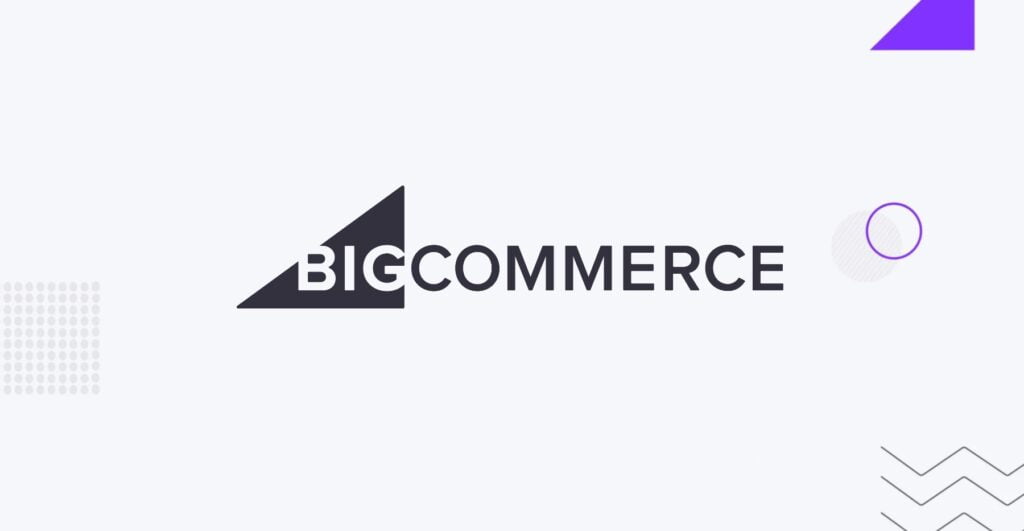
BigCommerce distinguishes itself as a robust, cloud-based Ecommerce platform tailored for businesses spanning diverse scales. With a focus on scalability and a rich ensemble of built-in features, BigCommerce minimizes reliance on third-party apps for essential functionalities. Its cloud-based architecture ensures optimal performance, security, and the flexibility to adapt seamlessly to evolving business needs.
Notable Features
Built-In Feature Richness: BigCommerce positions itself with a comprehensive set of built-in features, reducing the dependence on third-party apps for essential Ecommerce functionalities.
Scalability Dynamics: The platform is meticulously designed to accommodate the growth trajectory of businesses, providing a seamless transition as demands surge.
Pros:
- Multi-Channel Selling Facilitation: BigCommerce empowers users to sell across various channels, encompassing social media and diverse online marketplaces.
- Performance and Security Emphasis: The cloud-based architecture ensures robust performance and fortified security measures, critical for the sustenance of an online business.
Cons:
- Cost Structure Consideration: In comparison to some alternatives, the pricing structure of BigCommerce can be relatively higher, particularly for larger enterprises.
- Learning Curve for Advanced Features: Mastery of some advanced features may necessitate a learning curve, which could pose challenges for users seeking to harness the platform’s full potential.
Detailed Reviews of 7 More Ecommerce CMS Solutions
Having delved into the intricacies of the top three Ecommerce CMS platforms – WordPress, Shopify, and BigCommerce – it’s evident that the digital landscape offers many solutions catering to different business needs. The journey doesn’t end here; in fact, it expands as we explore seven more Ecommerce CMS platforms, each with its unique strengths and tailored features. From platforms prioritizing design aesthetics like Squarespace to global-selling champions like Jumpseller, and the unparalleled customization capabilities of Magento, the following reviews provide a comprehensive guide for businesses seeking the perfect Ecommerce match. Let’s embark on this exploration, uncovering the distinctive facets that make these platforms stand out in the dynamic world of online retail.
4. Squarespace

Squarespace, renowned for its visually stunning website designs, extends its prowess to Ecommerce with an intuitive platform catering to both artisans and established businesses. Emphasizing simplicity without compromising on design flexibility, Squarespace integrates seamlessly with its website-building capabilities, offering a holistic solution for those seeking an aesthetically pleasing online store.
Notable Features
- Drag-and-Drop Design: Squarespace excels in design flexibility, allowing users to create visually appealing stores through a user-friendly drag-and-drop interface.
- Integrated Marketing Tools: The platform incorporates marketing tools, from email campaigns to social media integrations, streamlining promotional efforts.
Target User Recommendations
Ideal for creative businesses, boutique shops, and individuals desiring a visually striking online presence. Squarespace suits those valuing design simplicity and seamless integration with Ecommerce functionalities.
Unique Aspects
The platform stands out with its emphasis on design aesthetics, making it an excellent choice for businesses where visual appeal plays a pivotal role in customer engagement.
5. Jumpseller

Jumpseller, a cloud-based Ecommerce platform, combines elegant design with a user-friendly interface. Tailored for global outreach, Jumpseller enables businesses to create online stores effortlessly. With a range of customization options and a focus on intuitive functionality, Jumpseller is an apt choice for those seeking simplicity and a worldwide market presence.
Notable Features
- Global Selling: Jumpseller facilitates international selling, providing shipping rate integration with major carriers and support for multiple languages and currencies.
- Customization Options: The platform offers a variety of themes and customization tools, allowing businesses to imprint their unique brand identity.
Target User Recommendations
Suited for businesses aspiring to tap into global markets, Jumpseller is ideal for those valuing simplicity, elegant design, and seamless international transactions.
Unique Aspects
Jumpseller’s emphasis on global selling and cloud-based architecture sets it apart, ensuring businesses can expand their reach without compromising on performance.
6. Magento
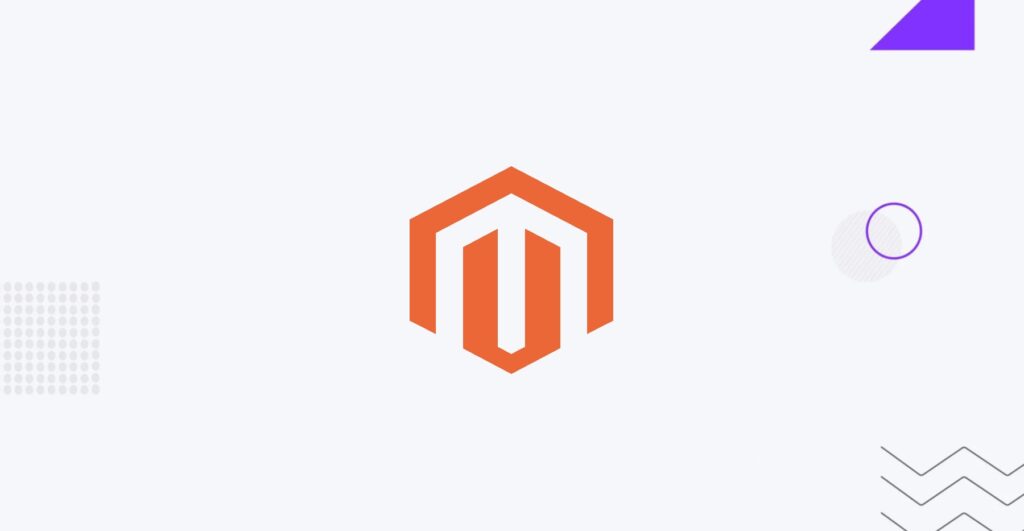
Magento, a heavyweight in the Ecommerce realm, distinguishes itself with its flexibility and customization capabilities. This open-source platform caters to businesses of varying sizes, empowering them to create highly tailored online stores. With a wealth of features and an extensive library of extensions, Magento is a go-to choice for those seeking ultimate control over their Ecommerce environment.
Notable Features
- Extensive Customization: Magento provides unparalleled customization options, allowing businesses to shape every aspect of their online store to match specific requirements.
- Advanced Ecommerce Functionality: The platform is equipped with advanced Ecommerce features, making it suitable for enterprises with complex needs.
Target User Recommendations
Ideal for businesses with advanced Ecommerce requirements and a need for extensive customization. Magento suits those willing to invest time in mastering its robust capabilities.
Unique Aspects
Magento’s strength lies in its deep customization capabilities, offering a playground for businesses with intricate Ecommerce needs, such as large inventories or complex product structures.
7. 3dCart
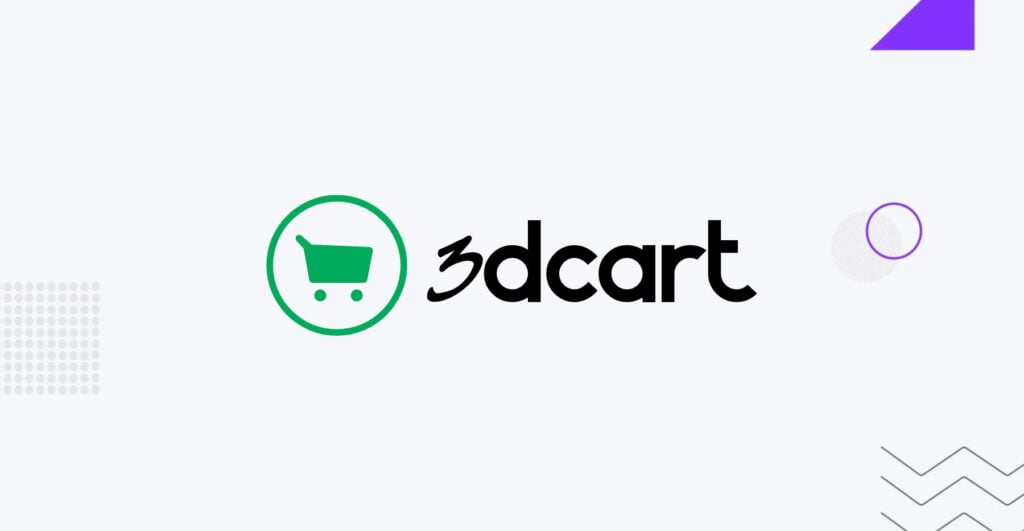
3dCart positions itself as a robust Ecommerce solution, catering to businesses with diverse needs. With a powerful API for seamless integration and a myriad of customization options, 3dCart empowers users to create tailored online stores. The platform’s focus on SEO optimization adds an extra layer of appeal for businesses aiming to maximize their online visibility.
Notable Features
- Versatile Checkout Methods: 3dCart allows businesses to choose their preferred checkout method, enhancing flexibility for both merchants and customers.
- Timed Email Campaigns: The platform includes features for setting up timed email campaigns, fostering post-purchase customer engagement.
Target User Recommendations
Recommended for businesses seeking a versatile Ecommerce solution with robust customization options. 3dCart is suitable for those prioritizing SEO optimization and integration capabilities.
Unique Aspects
3dCart stands out with its emphasis on diverse checkout methods and timed email campaigns, adding layers of versatility to its Ecommerce offering.
8. OpenCart
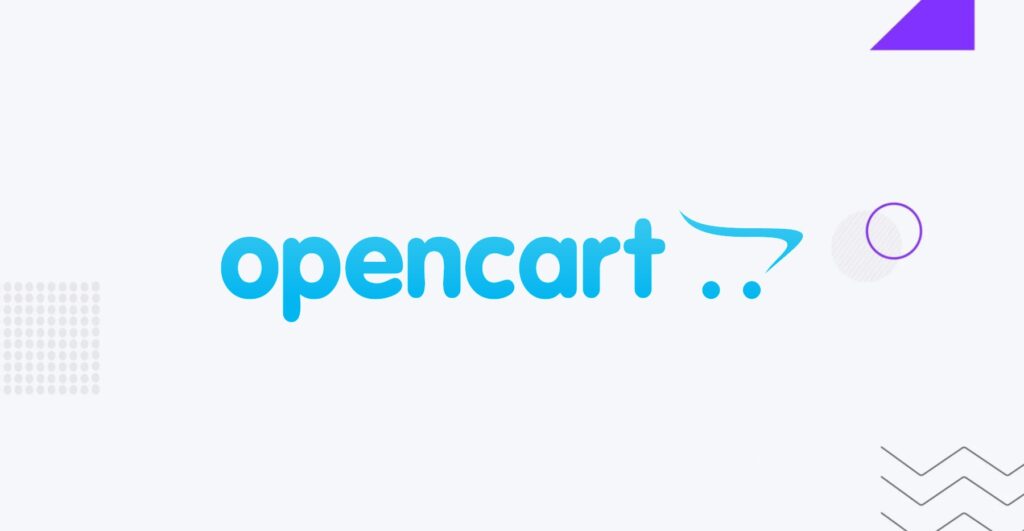
OpenCart positions itself as a lightweight and open-source Ecommerce platform, offering agility and freedom in store management. With a user-friendly interface and a variety of extensions, OpenCart caters to businesses looking for simplicity without compromising on essential Ecommerce features.
Notable Features
- Centralized Dashboard: OpenCart provides a centralized dashboard for managing sales, orders, customers, and other crucial aspects, ensuring a user-friendly experience.
- Extensive Payment and Shipping Integration: The platform supports multiple payment gateways and shipping carriers, facilitating seamless transactions.
Target User Recommendations
Ideal for small to medium-sized businesses seeking a lightweight yet feature-rich Ecommerce solution. OpenCart is suitable for those valuing open-source flexibility and ease of use.
Unique Aspects
OpenCart’s lightweight architecture and centralized dashboard contribute to its simplicity, making it an accessible choice for businesses with moderate Ecommerce needs.
9. PrestaShop
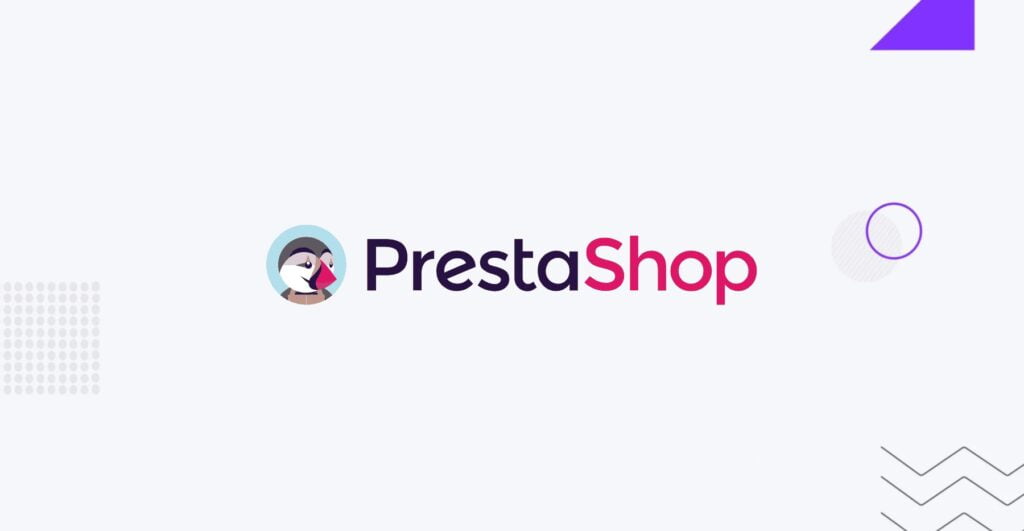
PrestaShop positions itself as a real-time Ecommerce management solution with the flexibility of open-source architecture. Tailored for businesses of varying sizes, PrestaShop provides a comprehensive suite of features for managing online stores effectively.
Notable Features
- Dynamic Inventory Management: PrestaShop offers real-time inventory management, enabling businesses to stay informed about product availability.
- Configurable Customer Accounts: The platform allows customers to create accounts quickly and offers customization options for managing customer-related settings.
Target User Recommendations
Suited for businesses seeking real-time inventory management and open-source flexibility. PrestaShop is recommended for those who value a balance between features and user-friendly store management.
Unique Aspects
PrestaShop’s focus on real-time inventory management sets it apart, ensuring businesses can make informed decisions about product availability and stock levels.
10. CS-Cart
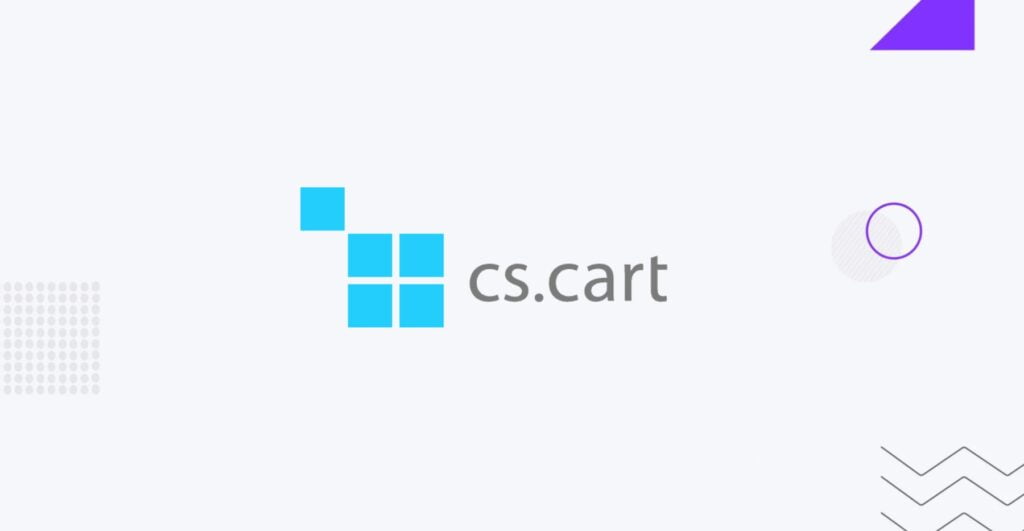
CS-Cart positions itself as a versatile and full-featured Ecommerce software, offering the capability to build online stores of any size and type. With a robust set of features and multi-store support, CS-Cart empowers businesses to manage multiple storefronts from a single administration panel.
Notable Features
- Automatic Shipping Rates: CS-Cart enables businesses to receive automatic shipping rates from major carriers, streamlining the shipping process.
- Widget-Based Store Embedding: The platform allows users to embed their online store into any webpage by inserting a widget code, expanding the possibilities of store presentation.
Target User Recommendations
Recommended for businesses requiring multi-store support and a rich feature set. CS-Cart is suitable for those managing diverse storefronts from a centralized administration panel.
Unique Aspects
CS-Cart’s emphasis on multi-store support and widget-based store embedding distinguishes it, providing businesses with the flexibility to manage and present their online stores efficiently.
Navigating the Decision: Key Factors in Choosing Your Ecommerce CMS
Selecting the right Ecommerce CMS is a pivotal decision that can significantly impact your online business. To navigate this choice effectively, it’s essential to consider several key factors tailored to your specific needs.
1. Ease of Use
Understanding the user interface and backend functionality is paramount in ensuring a seamless experience for managing your online store. The selected CMS should offer an intuitive platform for effortless navigation, empowering you with tools for efficient content management, product updates, and order processing.
2. Customization Options
The ability to tailor your online store to align with your brand identity is crucial. Look for a CMS that provides a high degree of customization, accommodating diverse design elements, themes, and modules. A platform with flexible options ensures that your online presence is a true reflection of your brand.
3. Scalability
As your business grows, your chosen CMS should seamlessly scale to meet increasing demands. Anticipate future expansion and choose a platform that can handle a growing product inventory, increased website traffic, and the integration of additional features without compromising performance.
4. Third-Party Integrations
Enhance the functionality of your online store by considering the compatibility of the CMS with third-party tools and services. Look for a platform that easily integrates with essential elements such as payment gateways, analytics tools, and marketing solutions. A well-integrated CMS streamlines various aspects of business management.
5. SEO Capabilities
Prioritize platforms that prioritize search engine optimization (SEO). A CMS with features like customizable URLs, meta tags, and sitemaps contributes to improved visibility on search engines, ensuring that your products reach a broader audience.
6. Security Measures
Protecting customer data and ensuring secure transactions are non-negotiable aspects of online business. Look for a CMS that implements robust security protocols, including SSL certification, data encryption, and regular security updates, to instill confidence in your customers.
7. Cost Considerations
Understanding the overall cost of implementing and maintaining your chosen CMS is essential. Evaluate subscription fees, transaction charges, and additional expenses for plugins or extensions. Ensure that the selected CMS aligns with your budget while providing the necessary features for your online store.
8. Customer Support
Responsive customer support is a critical aspect of a successful Ecommerce CMS partnership. Consider the level of support provided by the platform, ensuring that assistance is readily available in case of issues or queries. A supportive customer service team contributes to a smoother and more reliable online business operation.
Emerging Trends in Ecommerce CMS
As the digital landscape continually transforms, Ecommerce CMS platforms are at the forefront of innovation, integrating cutting-edge trends to enhance user experience, streamline operations, and fortify security. Delve into the evolving realm of Ecommerce CMS with a focus on emerging trends that are reshaping the online business ecosystem.
1. AI Integration
The infusion of Artificial Intelligence (AI) into Ecommerce CMS platforms is revolutionizing how businesses interact with their customers. AI-driven features, such as personalized product recommendations, chatbots for customer support, and predictive analytics, elevate the overall shopping experience. These intelligent capabilities not only enhance customer engagement but also contribute to data-driven decision-making for online retailers.
2. Mobile Commerce Dominance
The ubiquity of smartphones has propelled mobile commerce to the forefront of Ecommerce trends. CMS platforms are adapting to this shift by prioritizing mobile responsiveness, ensuring that online stores are seamlessly accessible across various devices. Mobile optimization, intuitive mobile interfaces, and mobile-centric payment solutions are becoming integral components of Ecommerce CMS offerings.
3. Security Advancements
As online threats become more sophisticated, Ecommerce CMS platforms are prioritizing security measures to safeguard sensitive customer information. Advanced encryption protocols, multi-factor authentication, and real-time security monitoring are emerging as standard features. Platforms are proactively addressing potential vulnerabilities to fortify the trust of both businesses and consumers in the online shopping environment.
4. Voice Commerce Integration
The rise of voice-activated devices has paved the way for voice commerce integration within Ecommerce CMS platforms. Voice search functionalities, voice-activated shopping assistants, and voice-controlled navigation are gaining prominence. This trend caters to the evolving consumer behavior of leveraging voice commands for online shopping, providing a more convenient and hands-free experience.
5. Augmented Reality (AR) Shopping Experiences
Ecommerce CMS platforms are embracing Augmented Reality (AR) to transform the way customers engage with products online. AR features enable virtual try-ons, interactive product demonstrations, and immersive shopping experiences. This trend not only enhances customer satisfaction by minimizing uncertainties related to online purchases but also sets the stage for a more interactive and engaging Ecommerce environment.
6. Subscription-Based Ecommerce Models
The subscription-based Ecommerce model is gaining traction, offering customers curated and personalized experiences through regular product deliveries. CMS platforms are adapting to accommodate subscription functionalities, allowing businesses to implement and manage subscription services seamlessly. This trend fosters customer loyalty and provides a steady revenue stream for online retailers.
7. Blockchain for Secure Transactions
Blockchain technology is making its mark in Ecommerce CMS platforms, especially in securing online transactions. The decentralized and tamper-resistant nature of blockchain enhances the transparency and security of financial transactions. As concerns about data integrity and online fraud persist, the integration of blockchain in Ecommerce CMS platforms addresses these challenges, instilling confidence in both businesses and consumers.
Conclusion
The foundation of a successful online store lies in understanding the nuanced requirements of your business and aligning them with the capabilities of the chosen CMS platform. Whether you opt for the versatility of WordPress, the user-friendly allure of Shopify, the expansive features of BigCommerce, or explore the myriad alternatives such as Squarespace, Jumpseller, Magento, and others, the key lies in a strategic match. While the top contenders boast robust features, it’s equally crucial to recognize the importance of factors like ease of use, scalability, customization options, and integration capabilities. These considerations lay the groundwork for a seamless online shopping experience, ensuring that your business not only survives but thrives in the dynamic digital landscape.
As you establish or enhance your online presence, keep in mind the crucial factors discussed. A dependable Ecommerce Content Management System (CMS) serves as the foundation of your digital storefront, influencing aspects ranging from user experience to operational efficiency. If you ever require assistance in selecting the most suitable ecommerce CMS for your online business or wish to launch a competitive web store from scratch, don’t hesitate to reach out to the IT Monks team. Simply fill out the brief form below, and we will get in touch with you to discuss your project.
Contact
Don't like forms?
Shoot us an email at [email protected]

